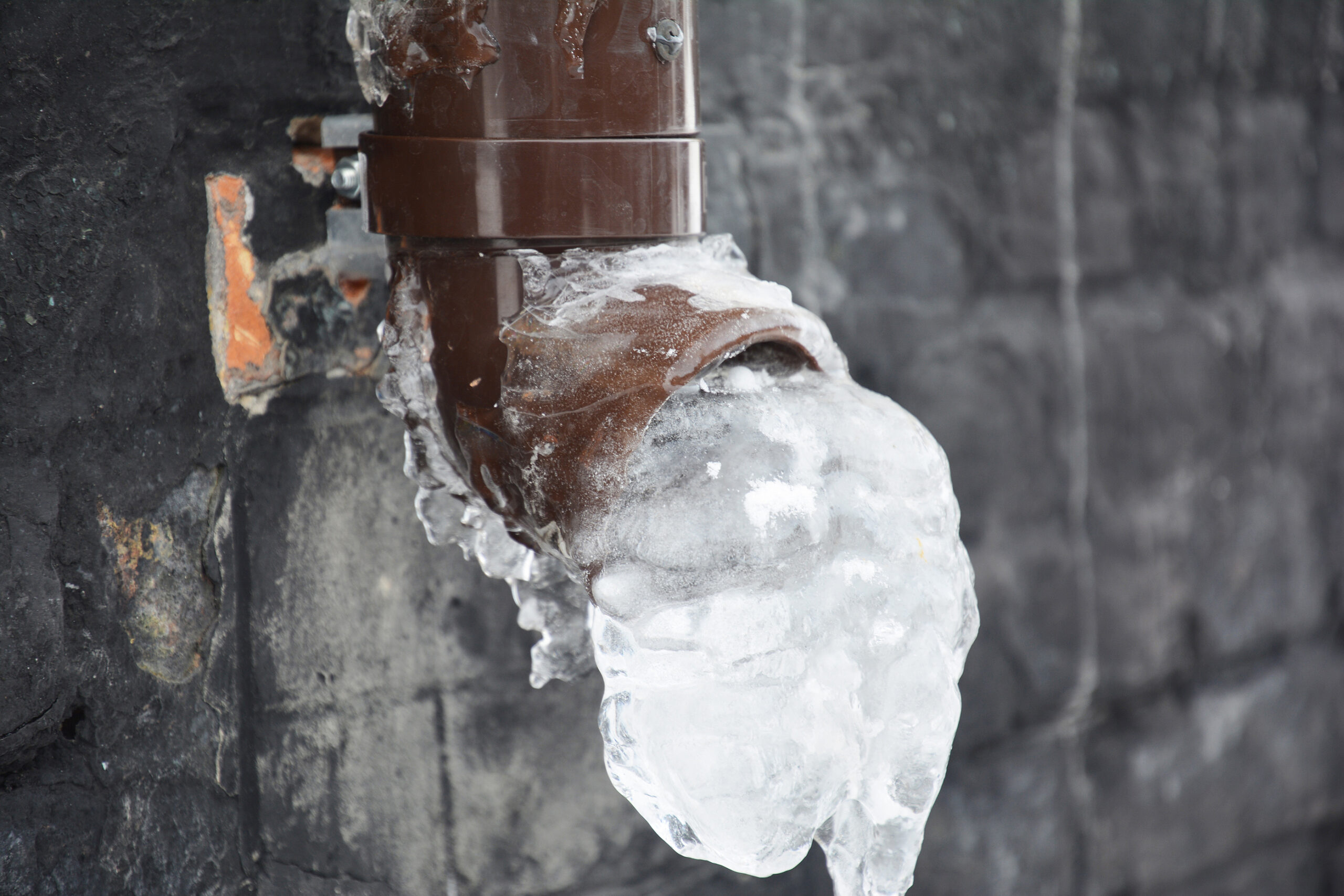How to Avoid Frozen Plumbing in Winter: Pro Tips
How to Avoid Frozen Plumbing in Winter: Pro Tips
Blog Article
In this article below yow will discover a lot of outstanding information and facts involving Preventing and dealing with frozen pipes.
:strip_icc()/snow-outdoor-faucet-pipes-4af65d1e5e904fb1aa7bf74071fe5d89.jpg)
Cold weather can ruin your pipes, especially by freezing pipes. Here's just how to prevent it from happening and what to do if it does.
Introduction
As temperature levels drop, the threat of frozen pipes rises, possibly bring about expensive repair work and water damages. Recognizing just how to stop icy pipes is essential for property owners in cold climates.
Avoidance Tips
Protecting at risk pipes
Cover pipes in insulation sleeves or make use of heat tape to protect them from freezing temperature levels. Focus on pipelines in unheated or external locations of the home.
Home heating techniques
Maintain indoor rooms appropriately heated up, particularly areas with plumbing. Open up cabinet doors to allow warm air to circulate around pipelines under sinks.
Just how to recognize icy pipelines
Seek lowered water flow from taps, unusual smells or sounds from pipelines, and noticeable frost on subjected pipes.
Long-Term Solutions
Structural modifications
Consider rerouting pipelines away from outside walls or unheated areas. Include added insulation to attic rooms, cellars, and crawl spaces.
Upgrading insulation
Invest in top quality insulation for pipelines, attic rooms, and wall surfaces. Proper insulation aids preserve consistent temperatures and lowers the risk of frozen pipes.
Shielding Outside Plumbing
Yard tubes and exterior taps
Detach and drain yard tubes before winter. Set up frost-proof faucets or cover outside faucets with insulated caps.
Comprehending Icy Pipes
What causes pipes to ice up?
Pipes ice up when exposed to temperatures below 32 ° F (0 ° C) for expanded periods. As water inside the pipelines ices up, it broadens, putting pressure on the pipe wall surfaces and possibly triggering them to rupture.
Risks and damages
Icy pipelines can cause water system disturbances, building damage, and pricey repairs. Ruptured pipelines can flood homes and create comprehensive structural damage.
Signs of Frozen Pipeline
Recognizing icy pipes early can stop them from breaking.
What to Do If Your Pipelines Freeze
Immediate actions to take
If you suspect icy pipelines, keep taps open to alleviate stress as the ice thaws. Utilize a hairdryer or towels soaked in hot water to thaw pipes slowly.
Conclusion
Protecting against frozen pipelines needs aggressive steps and quick actions. By understanding the reasons, indicators, and safety nets, homeowners can safeguard their plumbing during cold weather.
Helpful Tips to Prevent Frozen Pipes this Winter
UNDERSTANDING THE BASICS: WHY PIPES FREEZE AND WHY IT’S A PROBLEM
Water freezing inside pipes is common during the winter months, but understanding why pipes freeze, and the potential problems it can cause is crucial in preventing such incidents. This section will delve into the basics of why pipes freeze and the associated problems that may arise.
THE SCIENCE BEHIND FROZEN PIPES
When water reaches freezing temperatures, it undergoes a physical transformation and solidifies into ice. This expansion of water as it freezes is the primary reason pipes can burst. As the water inside the pipe freezes, it expands, creating immense pressure on the walls. If the pressure becomes too great, the pipe can crack or rupture, leading to leaks and water damage.
FACTORS THAT CONTRIBUTE TO PIPE FREEZING
Low Temperatures: Extremely cold weather, especially below freezing, increases the risk of pipes freezing. Uninsulated or Poorly Insulated Pipes: Pipes located in unheated areas, such as basements, crawl spaces, or attics, are more prone to freezing. Insufficient insulation or lack of insulation altogether exacerbates the problem. Exterior Wall Exposure: Pipes running along exterior walls are susceptible to freezing as they encounter colder temperatures outside. Lack of Heating or Temperature Regulation: Inadequate heating or inconsistent temperature control in your home can contribute to frozen pipes. PROBLEMS CAUSED BY FROZEN PIPES
- Pipe Bursting: As mentioned earlier, the expansion of water as it freezes can cause pipes to burst, resulting in significant water damage.
- Water Damage: When pipes burst, it can lead to flooding and water damage to your property, including walls, ceilings, flooring, and personal belongings.
- Structural Damage: Prolonged exposure to water from burst pipes can compromise the structural integrity of your home, leading to costly repairs.
- Mold and Mildew Growth: Excess moisture from water damage can create a favorable environment for mold and mildew growth, posing health risks to occupants.
- Disrupted Water Supply: Frozen pipes can also result in a complete or partial loss of water supply until the issue is resolved.
WHY CERTAIN PIPES ARE MORE PRONE TO FREEZING
- Location: Pipes located in unheated or poorly insulated areas, such as basements, crawl spaces, attics, or exterior walls, are at higher risk of freezing.
- Exterior Pipes: Outdoor pipes, such as those used for irrigation or exposed plumbing, are particularly vulnerable to freezing as they are directly exposed to the elements.
- Supply Lines: Pipes that carry water from the main water supply into your home, including the main water line, are critical to protect as freezing in these lines can affect your entire plumbing system.
- Underground Pipes: Pipes buried underground, such as those connected to sprinkler systems or outdoor faucets, can be susceptible to freezing if not properly insulated.
https://busybusy.com/blog/helpful-tips-to-prevent-frozen-pipes-this-winter/

Hopefully you enjoyed our piece on How to prepare your home plumbing for winter weather. Many thanks for spending some time to browse our piece of content. Enjoyed our article? Please quickly share it. Let someone else find it. We love reading our article about Helpful Tips to Prevent Frozen Pipes this Winter.
More Details Report this page